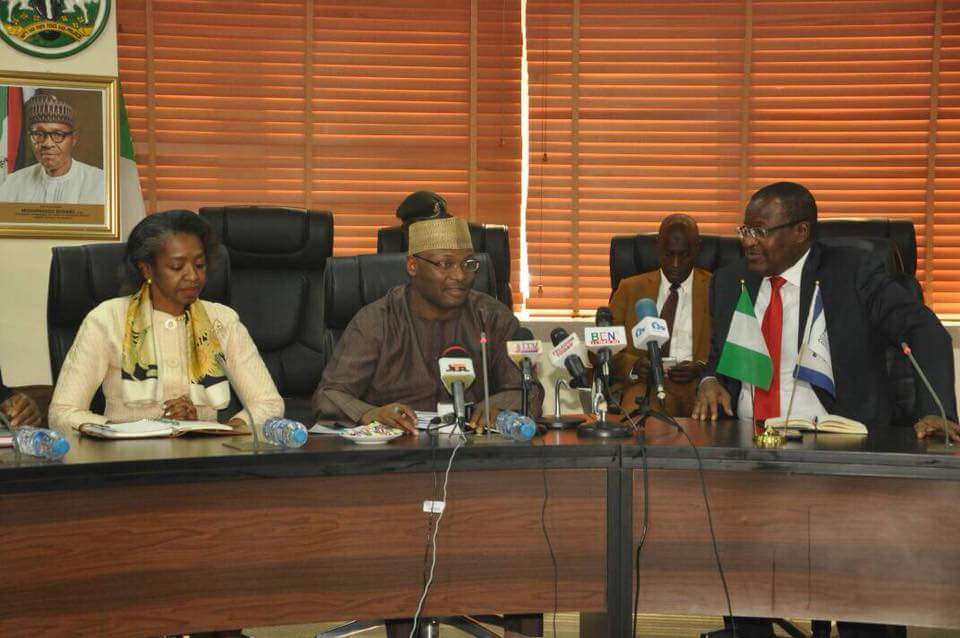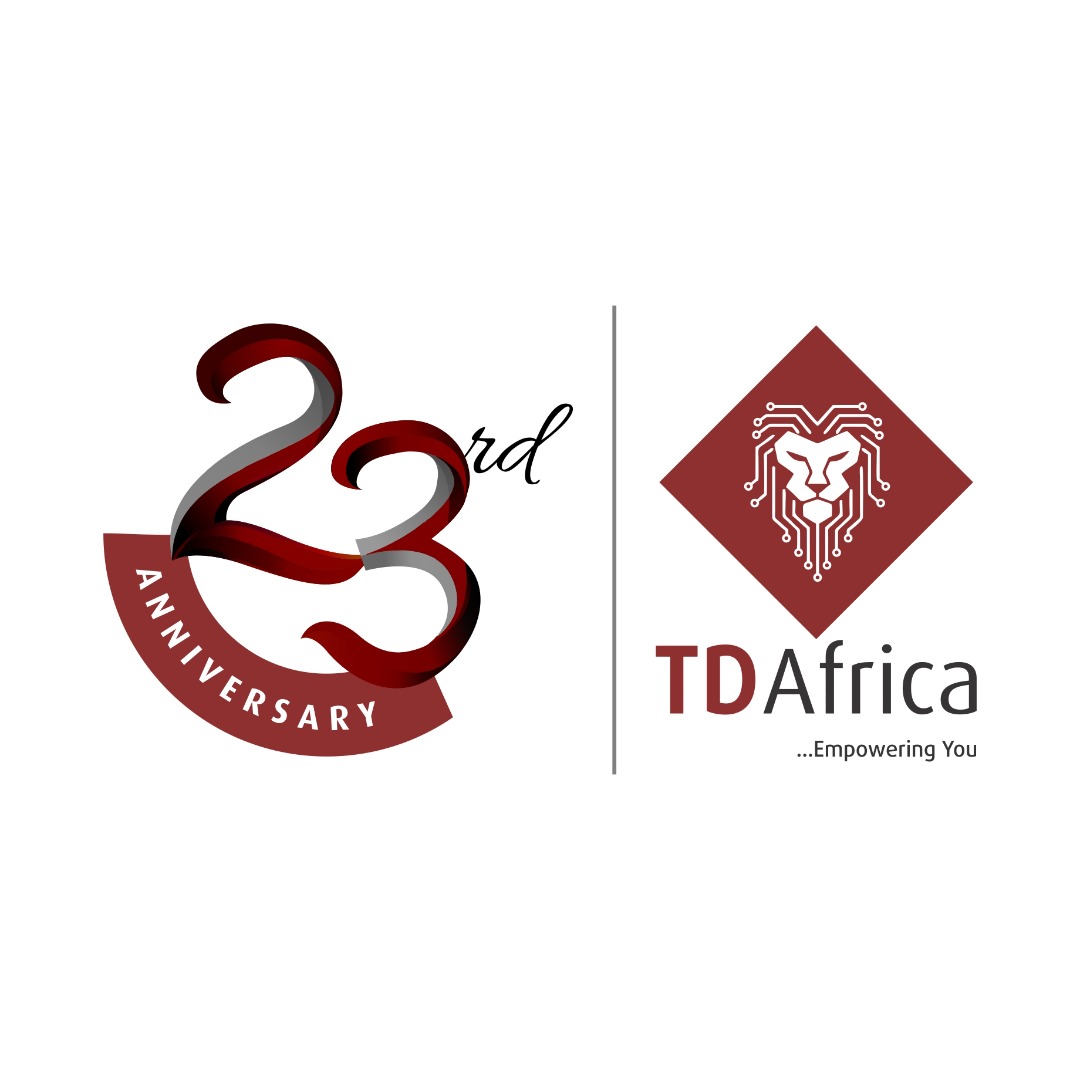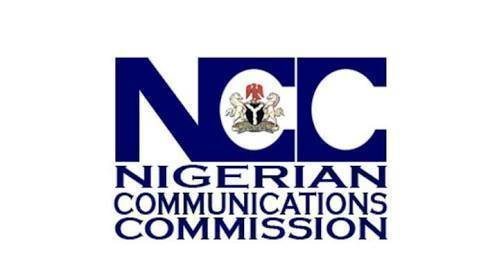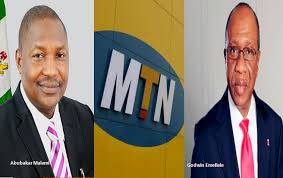On August 4, 2015, Prof. Umar Garba Danbatta, was appointed by President Muhammadu Buhari as the Executive Vice Chairman/CEO of the Nigerian Communications Commission (NCC), the regulatory authority for telecommunications in Nigeria. He was subsequently confirmed by the Senate on November 25, 2015. Since then, the professor of telecom engineering has worked with the support of the Board, Management and staff of the Commission to consolidate on the achievements of his predecessors at the telecom regulatory agency.
Preparing Nigeria for next-gen tech resolution
In consonance with the 3rd and 5th items of its 8-Point Agenda focusing on ‘optimising usage and benefits of spectrum’ and ‘facilitating strategic collaboration and partnerships’, the NCC, in collaboration with the Global System for Mobile Communications Association (GSMA) in the fourth quarter of 2018, held a workshop to examine the prospects and challenges of Next-Generation Networks (NGN) such as the Internet of Things (IoT), 5G, Artificial Intelligence (AI), Big Data, among others, in the nation’s telecoms industry.
The workshop, according to Danbatta was “to provide an avenue for regulators, operators and investors as well as other stakeholders to examine and constructively exchange ideas on the main demand areas for next generation of services, spectrum licensing reforms and the requirements for 5G and other emerging technologies that are to revolutionise the telecom system and users.” The workshop, thus, formed the precursor to the country’s preparedness for the impending deployment of 5G technology, whose commercial deployment on a large-scale and global level is expected to commence fully by 2020.
Consequently, in the last quarter of 2019, the Commission, in its proactive regulatory approach, mid-wifed the trial of Fifth Generation (5G) technology in Nigeria. This made NCC the first telecoms regulator in the whole of West Africa to begin such a historic trial towards unleashing greater digital revolution in the country. Today, 5G trials had been successfully conducted in major cities including Abuja, Calabar and Lagos with MTN being the first operator to carry out the trial. Through 5G network deployment, Nigerian will have access to faster broadband speed on their network. This will result in more efficiency in the course of carrying out their personal and official activities.
Accordingly, the InfraCo framework will provide the needed robust broadband infrastructure upon which the 5G services will ride, thereby impacting e-learning, tele-medicine, e-agriculture, e-health, e-commerce and so on, in terms of speed, latency and more applications that can be made possible when 5G is pervasively deployed by operators in the country. In addition to this, the Commission has projected greater prospects for accelerating digital transformation in Nigeria, through making the country a truly knowledge and digital economy.
Parts of these include the determination of the Commission to ensure that all new base transceiver stations (BTS) to be built by mobile network operators (MNOs) are LTE-compatible; ensure the implementation of the harmonised Right of Way (RoW) charges on state and federal government highways at the cost of N145 per linear meter; ensure elimination of multiple taxation and regulations; facilitate spread of 3G coverage to, al least, 80 per cent of the Nigerian population over the current 56.4 per cent of the population covered with 3G networks.
Other projections by the Commission towards deepening digital transformation include regulatory commitment to ensure operators upgrade their 2G BTSs to 3G; ensure spread of the impending 5G to, at least, five per cent of the population; determination to ensure spread of 4G/LTE services to 100 per cent of the population with a minimum broadband speed of 1.5 megabit per second (Mbps); and finally deployment of, at least, one (1) Access Point of fibre with a 10 gigabyte per second (Gbps) capacity in all the 774 local government areas, among others.
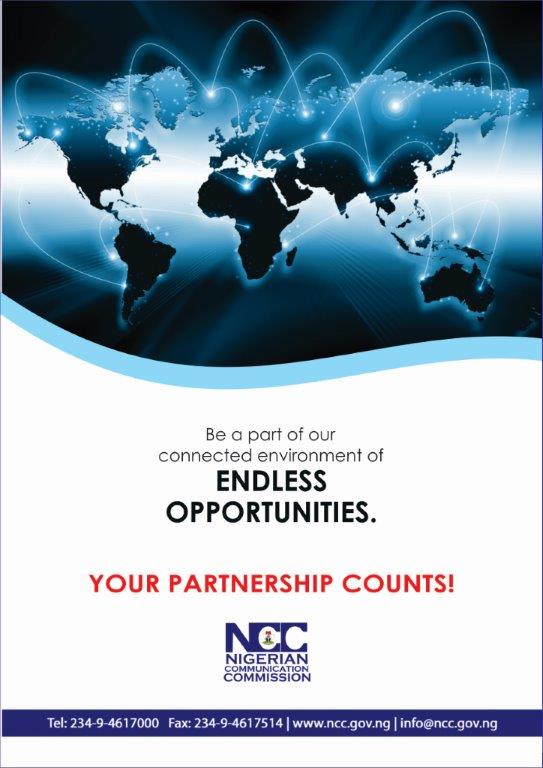 Growth in Telecom Investment
Growth in Telecom Investment
Four years ago, the foreign direct investment (FDI) and local investment profile in the telecoms sector stood at $38 billion. But today, investment in the sector has grown significantly to over $70 billion. The Commission also continues to strengthen commitment towards pursue relevant policies to encourage more investment into the industry.
Speaking at the maiden Nigerian Telecom Leadership Summit (NTLS) held in Lagos in 2019, Danbatta, had noted that “the volume of telecom investment in Nigeria is very impressive and indicative of a very fast-growing and resilient sector of the economy. But, we will continue to advocate for more investment, given that the industry is very capital intensive, with the competition for FDI becoming fiercer among different nations.” Today, the Commission estimates that about 40 million Nigerians – especially those in the rural and semi-urban areas- are yet to be reached with basic telecom infrastructure and services.
According to Danbatta, “the argument for more investments becomes more compelling, given that this industry is very capital intensive, with the competition for Foreign Direct Investments (FDls), becoming fiercer among different nations. In our consultative regulatory process, we consider shared experiences, and shared vision as the best approach to equip us with the tools to continuously reposition towards the course of effective regulation.”
He stated further that, as the 4th Industrial Revolution blurs the lines between the physical, biological and digital boundaries, the industry will continue to witness challenges of investments to match growth and technology evolution dynamics. In this age, broadband is of critical importance with its potential to improve the economy of many nations. “We may all be aware of the empirical study by the World Bank, which suggests that for every 10 per cent growth in Broadband penetration results in 1.34 per cent in Gross Domestic Product (GDP) in developing countries. This is one of the reasons why we have developed the regulatory and licensing framework to accelerate broadband availability, accessibility and affordability,” Danbatta stated at the NTLS in Lagos.
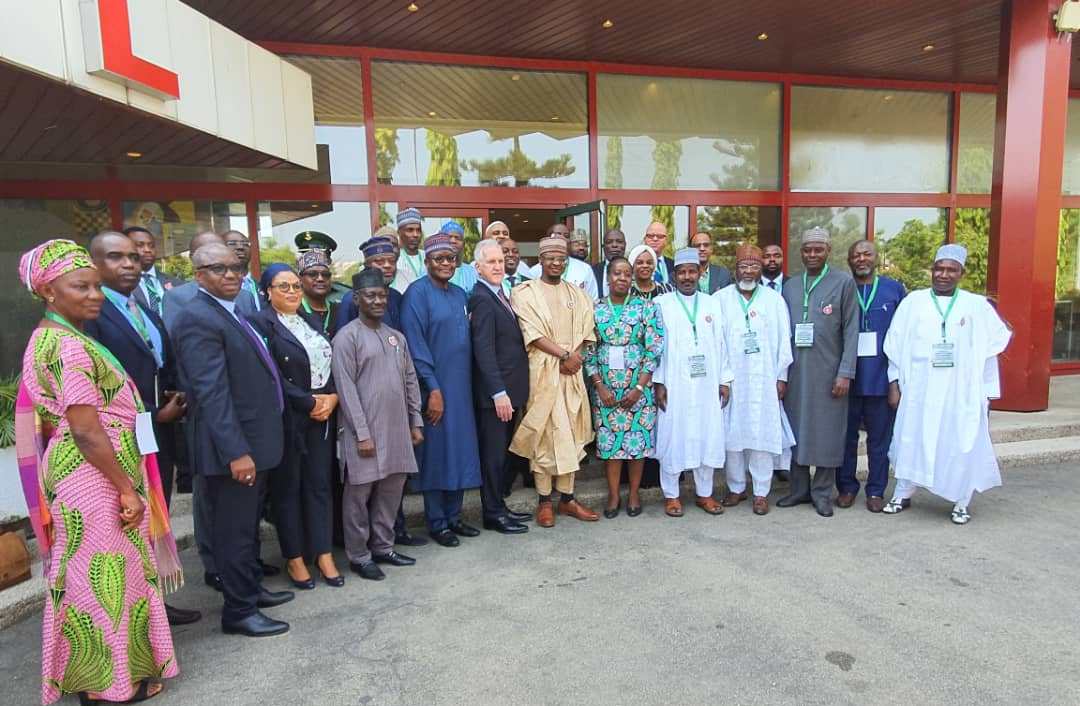
Restructuring the telecom VAS Segment to Create Jobs, Improve Innovation
In the last four years, the Commission had succeeded restructuring value–added services (VAS) segment of the telecommunications sector through the development of VAS Aggregator Framework – a move that has helped to sanitise the industry. Today, the telecoms VAS segment, currently estimated at $200 million, is said to now have the potential to be worth over $500 million in the next few years.
Consequently, the Commission’s Board Resolution at its 88th sitting held on Thursday 27th September, 2018 considered and approved the recommendation for the grant of VAS –Aggregator Licence to nine companies. An additional licence has been added, bringing the number of licensed VAS Aggregators in the telecoms sector to 10. The licensed companies are: I-Cell Multimedia Limited, Nina-Jojer Limited, 21st Century Technologies Limited, Nitroswitch Limited, HML Consulting Limited, Iykejordan Limited, Cognys Systems Limited, Perpetual Communications Limited, Mobile Intelligence Limited and Aerandir Technologies Nigeria Limited.
Apart from boosting activities in the VAS segment of the telecoms space in Nigeria, the VAS aggregator licensees will improve innovation, local content, employment opportunities, and increase in income stream to both network operators and content developers.
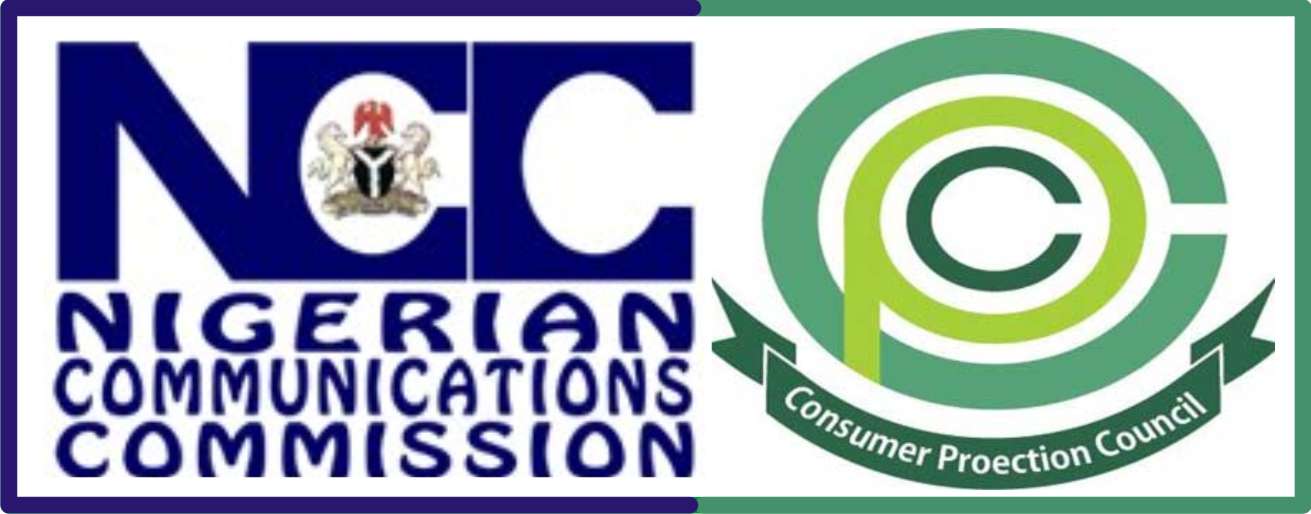 Improving Consumer Protection, Empowerment
Improving Consumer Protection, Empowerment
Perhaps, more profound in the agenda of the Commission is its Item 6 which consumer protection and empowerment. In the last four years, the Commission has intensified efforts at protecting and empowering consumers of telecoms services by developing new and sustaining existing initiatives in this direction.
Some of these initiatives include the popularisation of mobile number portability (MNP) service to give consumers wider choice to migrate from one network to another without changing their original line. This has also helped consumers from indiscriminately purchasing Subscriber Identity Module (SIM) cards to achieve their objective of being on another network that offer better service delivery.
The declaration of 2017 as Year of the Consumer was another giant step by the Commission. The philosophy of this initiative was dedicate 2017 and beyond to addressing critical issues affecting telecom, consumers in the industry. It is, therefore, interesting to note that since the 2017 declaration, NCC’s efforts at implementing consumer-centric initiatives have increased. This underscores the importance the Commission places on consumer a critical stakeholder in the telecoms value-chain.
Suffice it to say that in the last four years, the Commission has sustained periodic consumer engagement, on a continuous basis, through its various outreaches such as the Telecoms Consumer Parliament (TCP), the Consumer Outreach Programme (COP), the Consumer Town Hall Meeting (CTM), the Elite Forum as well as its Consumer Conversation forum, among others.
The NCC has demonstrated unflinching commitment to consumer in terms of consumer complaints resolution. For instance, through the creation of the Toll-Free Number, 622, as a second-level mechanism for consumer complaints resolution, telecoms consumers have found easier to escalate any service-related complaints they might have to the Commission for prompt resolution. According to NCC report, between January 2017 and December 2018, for instance, the Commission received a total of 118,784 complaints from consumers, of which a total of 92,757, representing 78 per cent of total complaints received during the two years period, were successfully resolved to the satisfaction of telecom consumers.
A similar report by the Commission showed that between January 2019 and October 2019 alone, a total of 19,841 complaints were received from telecoms consumers across its various consumer complaints channels. Of these, the NCC successfully resolved a total of 17,851, representing a 90 percent success rate of consumer complaints resolution during the period. It is noteworthy that a total of 18, 717 complaints were lodged to the Commission through the NCC Contact Centre. Little wonder, then, that based on the satisfaction they enjoyed in getting their complaints resolved by the Commission, a total of 19,345 satisfied consumers sent notes of commendation/appreciation to the Commission via phone calls made to the NCC Contact Centre and e-mails received via the NCC Consumer Portal. All of these were to appreciate the various regulatory interventions that helped them in satisfactorily resolving their service-related issues.
Consumer exposure to unsolicited text messages has declined drastically through the popularisation by the Commission and the resultant activation of the DND facility by the subscribers. The DND facility has significantly helped the consumers to control unsolicited text messages. As of October 2019, a total of 22,356, 919 subscribers have activated the DND service either fully or partially.
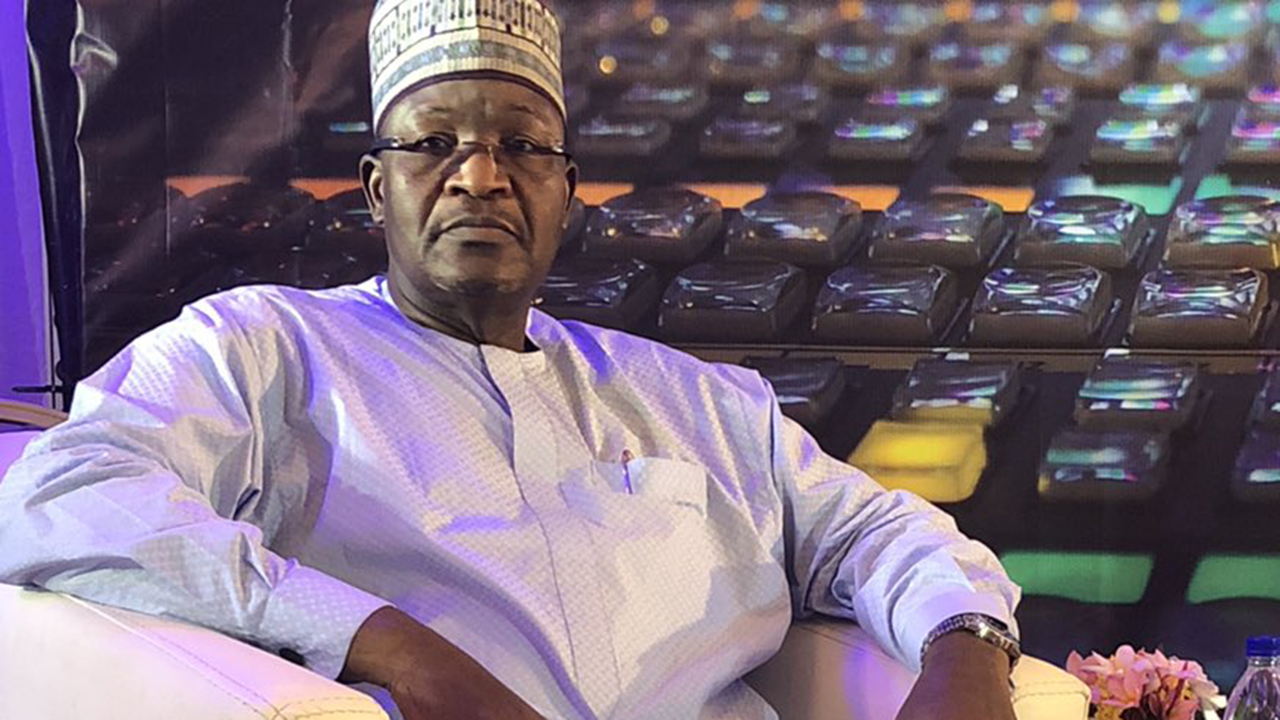
Further to its consumer centric regulatory approach, the Commission has, so far, issued a number of regulatory Directions to operators. They include the direction on data roll-over, which enables consumers to roll over unused data for period of time, ranging from one day to seven days, depending on their data plan; and the direction on forceful subscription of data services and VAS, which directs service providers to desist from forceful/automatic renewal of data services without prior consent of subscribers. All these have continued to positively impact on the consumer’s quality of experience (QoE).
The Commission, in 2019, also stepped up operators’ compliance with service level agreement with respect consumer complaints management. In 2019, for instance, the NCC revised its Consumer Complaints & Service Level Agreement (CC/SLA) for the purpose of improving consumer complaint management and resolution by the service providers in a much prompter manner. More importantly, the focus of the NCC’s Industry Consumer Advisory Forum (ICAF)’s Open Forum held in the fourth quarter of 2019 was how to further protect the consumers with respect to financial frauds committed by criminals using telecoms platforms.
As a testament of its “multi-stakeholder spirit’ and in continuation of its efforts towards strengthening inter-agency collaboration, the NCC, in November 2019, inaugurated a 26-member multi-sectoral committee to combat the issue of financial frauds using telecoms or digital platforms.
The 26-man committee drew membership from the Central Bank of Nigeria (CBN), the NCC, Federal Competition and Consumer Protection Commission (FCCPC), Nigerian Inter-Bank Settlement System (NIBSS), National Identity Management Commission (NIMC) and the Association of Licensed Telecom Operators of Nigeria (ALTON).
Other organisations with representation on the Committee include the banks, security agencies such as the Office of the National Security Adviser (ONSA), the Economic and Financial Crimes Commission (EFCC), Independent Corrupt Practices other Related Offences Commission (ICPC), Nigeria Police Force (NPF), Nigeria Financial Intelligence Unit (NFIU) and the Federal Ministry of Justice.

